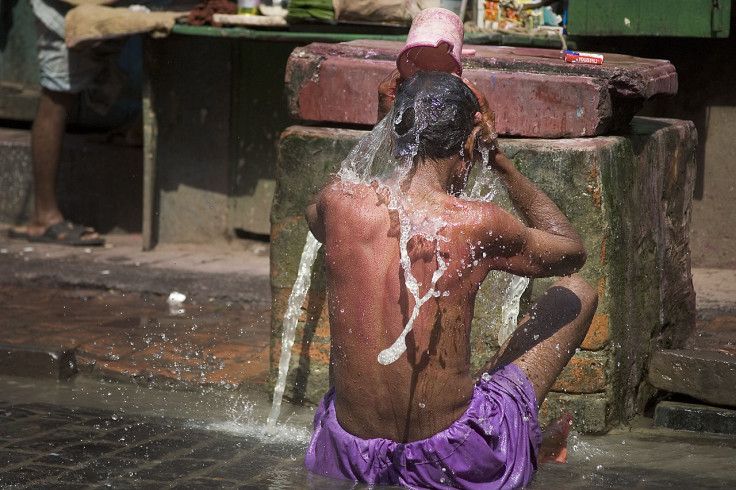Extreme heat predicted to hit 350m more people a year by 2050 despite 1.5C target
Lagos is expected to face 100 times more heat stress by 2050.
An average warming of 1.5C – the cap targeted in the Paris Agreement – will not be enough to prevent more frequent and intense heatwaves worldwide, as scientists predict 350 million more people globally will be exposed to potentially deadly heatwaves by mid-century.
One of the most extreme changes will be in Lagos, Nigeria, which is set to experience 1,000 times greater heat stress by the end of the century compared with 1979, according to a paper published in the journal PNAS. At present, Lagos does not have a particularly bad problem with deaths from heatwaves, but it is the city predicted to go through the greatest period of change on this count in the coming decades.
The deaths due to extreme heat are set to rise more than increasing temperature alone would predict. This is because as air gets warmer, it can hold more water. Higher humidity means that sweat doesn't evaporate so easily, so people struggle to keep cool.
"Even when we look at heat stress from our starting point now, about 20% of those cities experience heat stress," study author Conor Murphy of Maynooth University, Ireland, told IBTimes UK.
The study looked at the largest 44 megacities in the world, to see how rising air temperatures and higher levels of humidity will affect heatwave deaths. The researchers used a range of models and data from past heatwaves to predict the effects of temperatures rising from 1.5 to 4C.
The 2015 record heatwave in Kolkata, India, which was linked to about 3,400 deaths, is predicted to become the norm in the city with a 1.5C increase. With a 2C increase, Karachi, Pakistan, is also set to experience this record heat every year.
"Other cities, such as Tokyo, begin to join that list of annually heat stressed cities," Murphy said. "At 4C, New York becomes heat-stressed annually."
The study didn't take into account different cities' resources and abilities to adapt to heatwaves when predicting deaths. Concerted efforts to cope with heatwaves in these cities could lead to a lower death count for the increasing temperature. The effects also disproportionately affect the old, young, those with health conditions, people who work outdoors and those with little access to electricity.

"When we look at cities like New York, they have the financial resources to invest in early warning systems, in helping communities to cope with extreme events," Murphy said.
"In many parts of the Global South – in Karachi and Kolkata – there aren't those resources available and social vulnerability tends to be higher."
© Copyright IBTimes 2025. All rights reserved.






















